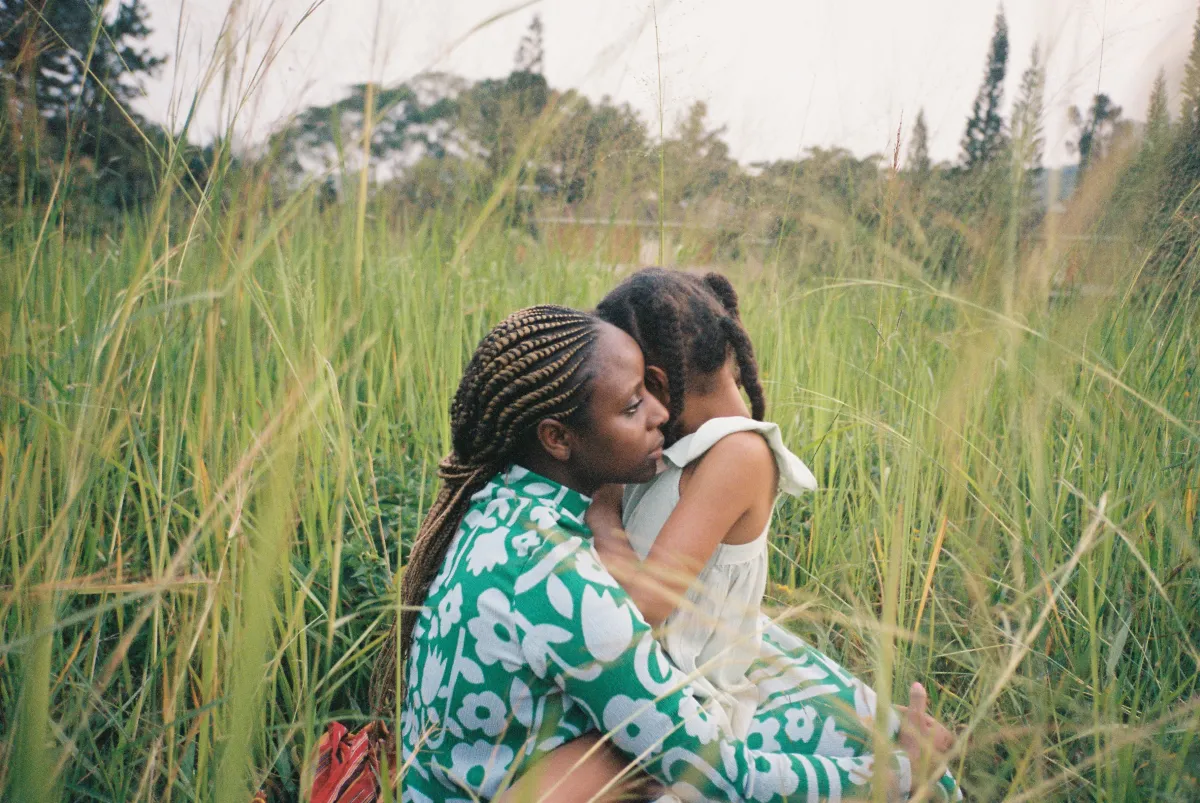
“We Share a Common History”: Patricia Bbaale Bandak on Her Hot Docs-Debuting ‘Death of a Saint’

Still from Death of a Saint. Image credit: Troels Rasmus N'koya-Jensen. Courtesy of the DFF
On Christmas Eve of 1989, a pregnant mother of nine named Imelda Bbaale was inexplicably shot and killed in her home. It was a shocking tragedy that forced Imelda’s husband to flee with his young children to a different continent with the murder remaining unsolved. Nearly a quarter century on, Imelda’s daughter Patricia Bbaale Bandak gave birth to her own baby girl (also Imelda) on that very same horrible yet holy date. The coincidence catalyzed Bandak, now an acclaimed Ugandan-Danish filmmaker, to return to her native land to seek answers—less about the circumstances surrounding her mother's death than about who this woman actually was.
Unfortunately for this very direct and no-nonsense daughter, her mother was a saint. As are all deceased Ugandans—as speaking ill of the dead is not just unseemly but taboo. Luckily, the 2019 Nordic Talents-winning filmmaker proves extraordinarily attentive in her winkingly-titled Death of a Saint as she attempts to chip away at the cookie-cutter image of a flawless churchgoing Christian, while remaining highly empathetic to her reluctant family, including her still traumatized father who retired to the country of the crime. And while there are no easy answers, the dogged director, through utmost patience and unburied archive, ultimately does discover a crucial thing or two about her mortal mom—and thus, more importantly, about herself.
Just prior to the film’s premiere in the International Competition of Hot Docs, Documentary reached out to the multifaceted director and screenwriter, whose work also includes an award-winning short (2019’s Villa Villekulla) and a critically-acclaimed TV series (2022’s Bad Bitch). This interview has been edited for length and clarity.
DOCUMENTARY: I read that you grew up in a small town in Denmark and eventually graduated from the National Film School. What led you to want to become a director in the first place? Was this decision met with encouragement from your family?
PATRICIA BBAALE BANDAK: Attending film school was never a thought that crossed my mind growing up. I was a very creative child, but growing up in a refugee family, my dad would emphasize becoming a doctor, engineer, or lawyer.
But during university, where I studied communication and conflict studies, I took a course in documentary filmmaking and fell in love straight away. The National Film School only admits six students per course every second year, and as far as I know, I’m the first African to attend the school. That made my dad very proud, and he bragged about it to our entire family.
D: Though your short Villa Villekulla featured your siblings (and likewise screened at Hot Docs), not all of your family members appear in Death of a Saint. So I’m curious to hear how you ended up including the characters that you did. Did some folks decline to participate from the start? Did others drop out during production? What were these discussions like?
PBB: It was a little bit of both. For some of my siblings, it was a matter of logistics, as some of us live quite far from each other. Others felt that it was a very personal film, and they were not sure if they were ready to talk so openly and candidly. My younger brother articulated it quite well: We share a common history, but this is my specific personal experience. Of course, I respected those who felt it was too sensitive. Overall, I’ve received a lot of encouragement and support.
D: How does your nonfiction filmmaking inform your fictional projects, and vice-versa? Are they two sides of the same coin for you—or wholly different endeavors?
PBB: I don’t think that much about format when I get an idea. I let each project direct the direction. For example, I’m working on a fiction film called Wannabe that's set on a small island in Denmark during the ’90s. With this film I want to look at Danish society, but through the eyes of a refugee. Instead of only casting professional actors I prefer to cast “real” people and write my characters around them.
So I do believe that my fiction projects become better because of my documentary background, and likewise I feel like my documentaries gain from my fiction experience.
D: What are your ultimate hopes for the film?
PBB: On a personal level, my hope was to create a movie that would give my daughter answers so that she wouldn't inherit and experience the darkness that I did growing up. But during the process, I learned that I had to do it for me first.
On a broader level, I want to talk about trauma and identity. Even though my story is very specific and brutal, I hope that it can work as a magnifying glass to universal feelings and themes.
Lauren Wissot is a film critic and journalist, filmmaker and programmer, and a contributing editor at both Filmmaker magazine and Documentary magazine. She also writes regularly for Modern Times Review (The European Documentary Magazine), and has served as the director of programming at the Hot Springs Documentary Film Festival and the Santa Fe Independent Film Festival.




